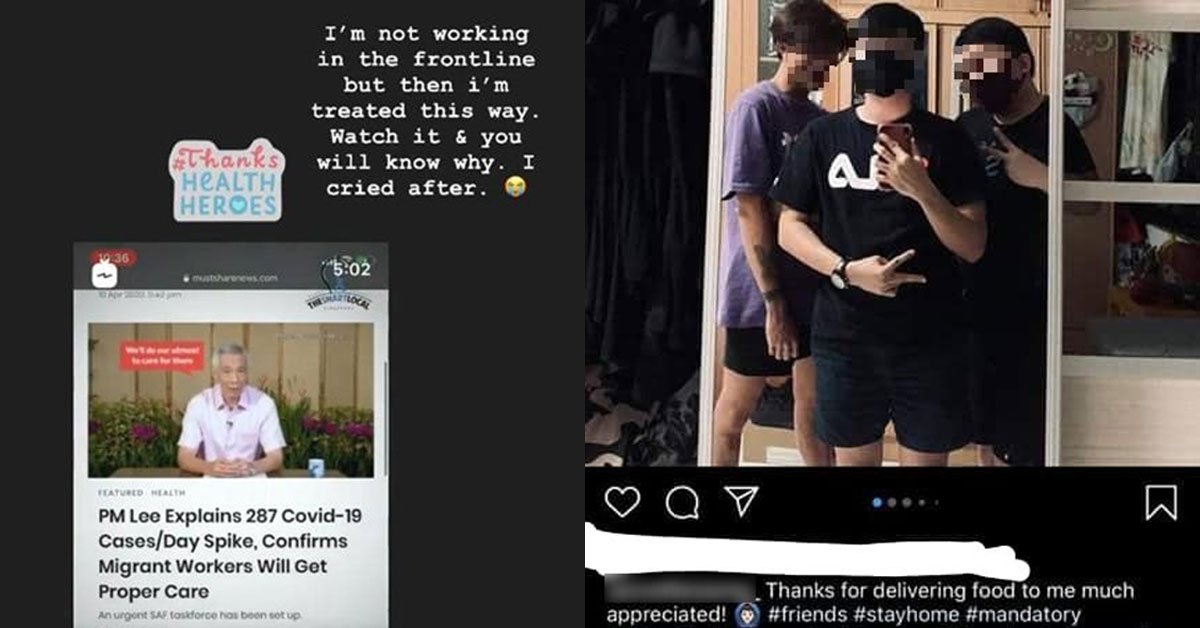Enforcement officers and safe distancing ambassadors are out on the streets to catch errant residents during the circuit breaker period, but they are nowhere near as scary as one crime-stopping group.
The Morally Righteous Internet Police.
The Morally Righteous Internet Police, or MRIP for short, has been around ever since the internet existed, but they really kicked into high gear ever since the Covid-19 virus started spreading.
MRIP is full of eagle-eyed netizens who spend their days scouring the web for things to be outraged by.
Like a picture of a minister cooking something with three trays of eggs in the background during a time when everyone was told not to stockpile items.

The MRIP also has officers on the streets, like the one who snapped an image of a man who forgot to wear his mask and posted it online so netizens could shame him.

Yes, you have to be really careful during the circuit breaker period to avoid spreading the coronavirus, but also to avoid being shamed by thousands of people.
S’porean Posted Support for Frontline Workers in IG But Also Posted Images of How He Broke CB Rules
A 26-year-old man has been called out for breaking circuit breaker rules after posting several images on his Instagram account.
It all started with a wholesome post on 25 Apr, where he expressed gratitude for the efforts of the frontline workers.


But then he posted another story of a man cooking for him:

And after officers from The Morally Righteous Internet Police did some digging, they found he had earlier posts that showed friends “delivering” food to him, with the hashtags #stayhome and #houseparty.


When the man was called out by a follower, he allegedly blocked her from his Instagram Stories.
However, this conversation took place before these posts, suggesting that there were similar posts before this.

As you know, residents here are not allowed to have visitors from other households during the circuit breaker period.
And posting an image of you with your friends at home with the two contradictory captions #stayhome and #houseparty is just asking for trouble.
Facebook User Posted Images Online
One Facebook user, annoyed by the man’s actions, posted images of the man’s posts, most of which included his face and his friends’ faces.
The user said she spoke to the man on Instagram where he explained that he was “lonely”, and blocked those who confronted him.
She said “many” people tried to report him through the OneService app, but said that the app “doesn’t work at all”.
She said she also went down to the police station and even called MOH, but to no avail.
In her post, she wrote “Dear you, i am not hurting you. You are hurting the whole entire nation with your selfish act.”
Online Shaming Could Turn Into Doxxing
While the Facebook user didn’t share the man’s name, she shared pictures of his face as well as his Instagram handle.
You may not know this, but online shaming of those flouting circuit breaker rules could amount to doxxing, lawyers say.
For those who don’t know, doxxing laws were amended on 1 Jan 2020.
Basically, if you share other people’s personal information such as:
- Photographs
- Videos
- Employment Information
- Family
- Education
- Contact details
with the express intent to harass, threaten, or incite violence against them, you’re breaking the law.
In this instance, and in instances where people are sharing images of residents not wearing masks, this could be seen as doxxing because it involves publishing personal information with the intention to cause harassment, alarm or distress.
Advertisements
It’s understandable to be upset when you see someone breaking the circuit breaker rules so blatantly, but before you post such sensitive and personal images online, ask yourself one question:
What do I want out of this?
Usually, people want the offender to be harassed, condemned and vilified as retribution for their wrongdoing because they feel like the offender is getting away with it.
But is that really for us to decide?
As my colleague mentioned, call-out culture is less about the offender and more about the “digital hero”.
Advertisements
Sure, you can go ahead and report such incidents via the OneService app, but otherwise, a gentle and simple reminder will do.
